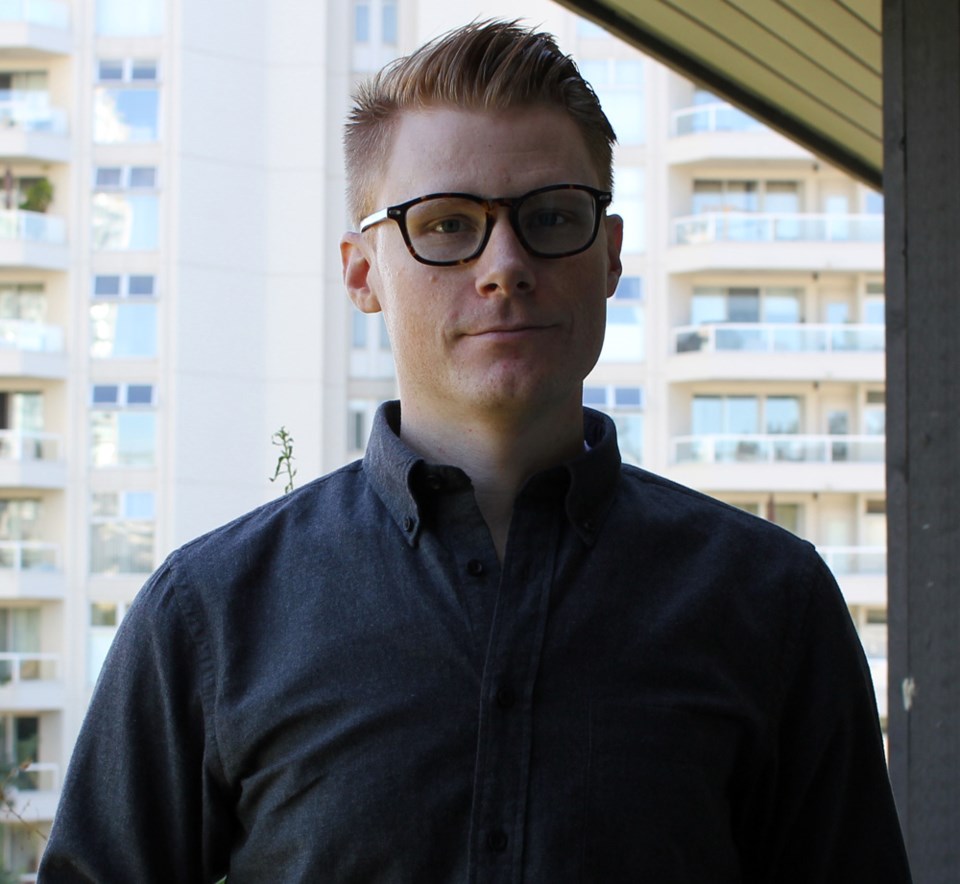Burnaby is among the top cities in the Lower Mainland in “desperate” need of Big Brother and Big Sister volunteers, according to the organizations two executive directors.
Valerie Lambert with Big Brothers of Greater Vancouver told the NOW there’s a year-long waitlist in Burnaby, with 27 boys waiting to be paired up with a Big Brother – someone who, for a minimum of one year, spends two to three hours with them every week and takes them on regular outings.
There are at least another 50 more kids in the city who are in need of female and male mentors at the elementary school level. The non-profit’s in-school mentorship (ISM) program sees one-on-one matches meet during school hours on school grounds, to do things like play board games or just hang out.
“We’re really, really desperate for ISM volunteers, particularly with the new school year just starting,” said Lambert.
Meanwhile, there are 12 girls in Burnaby who are waiting to be paired up with a Big Sister and another five who need a study buddy, said Brenda Gershkovitch with Big Sisters of B.C. Lower Mainland. The study buddy program provides academic tutoring for girls ages 7 to 17.
Gershkovitch said the national organization did a study a few years ago that looked at the “mentoring effect.” It compared 1,000 children from similar socio-economic backgrounds – half were mentored, the other half were not. Among the findings, 47 per cent of adults who were mentored as children held senior leadership positions, they made $315,000 more income in their lifetime, they were 17 per cent more likely to be employed, and were more than 60 per cent likely to have post-secondary education.
“Having a stable adult in your life has a huge impact, absolutely massive,” she said. “If you have positive self-regard and think of yourself as a worthy person, you’re able to accomplish a lot. Kids who don’t have those feelings, it’s pretty hard to succeed.”
One misconception people have about volunteering with Big Brothers and Big Sisters is that it’s an expensive endeavour, Gershkovitch added. She said the non-profit gets a lot of donated tickets and provides volunteers with a list of free things to do.
“Sometimes it’s just baking cookies or walking dogs in the park for the SPCA,” she said.
Devin Service was paired up with his Burnaby ‘little’ in 2014 as part of the ISM program. Service, 33, had moved from New Brunswick four years prior and was looking for a way to make an impact in his community.
When he and his then-nine-year-old buddy from Edmonds Elementary had their first meeting, Service admitted they were both shy and nervous. The two would throw the basketball around in the gym.
“After two, maybe three visits, we were sort of like best buddies,” Service said, adding he’s been teaching him chess recently. “The hour I spend with him is fantastic. Regardless of how busy my work life is or how many other things I have on the go, it’s great to have that one hour a week I can just go and dedicate to him.”
He added he’s been able to see his little brother’s confidence soar over the last three years. Their relationship has also changed him personally, he said, noting he’s a lot more outgoing.
“It’s a fantastic program. I would absolutely recommend it to anybody who has the time,” said Service.
Meanwhile, Gershkovitch said it’s hard to say whether volunteer numbers in Burnaby have been on the decline. Because Big Brothers and Big Sisters is a non-profit, she said outreach is mostly done through word of mouth and not through paid advertising.
“A lot of people know someone who had a big brother or big sister and knows how much of a difference it can make. … It’s often just a matter of letting people know, yeah, we’re looking for volunteers,” she said.
--------------------------------------------------
THINKING OF VOLUNTEERING?
Big Brothers of Greater Vancouver
Big Brother Mentoring program: Two-plus hours a week is all it takes to become a Big Brother to a kid aged 7 to 14. Whether it’s a round of mini-golf or a bike ride, the result is a “life-changing” experience for all. The commitment is at least a year. Volunteers must be at least 18 years old.
In-school Mentorship program (for female and male volunteers): A weekly visit of one hour a week for the duration of the school year is required. Matches don’t meet over summer break or during the school holidays. All sessions are held on school grounds during school hours. Volunteers must be at least 18 years of old. The little buddies are in grades 1 to 6 and are between six and 12 years old. There’s also the Teen Mentor program, which matches high school students with elementary school students.
Between Generations program: This program aims to connect seniors and/or retired men and women with elementary school students. The pair meet once a week at the school.
Big Sisters of B.C. Lower Mainland
Big Sister Mentoring program: Be a role model and a friend to a girl aged 7 to 17. The commitment is one outing a week (two to four hours) for a minimum of one year. Volunteers must be 19 years and older to apply.
Studdy Buddy Mentoring program: This program is for girls, ages 7 to 17, who need academic help and can’t access other tutoring services due to financial constraints. The commitment is one hour a week for a minimum of six months. Sessions take place at a mutually-agreeable location, like a library, after school or on weekends. Volunteers must be 19 years and older to apply.
Go Girls! Healthy Bodies, Healthy Minds is a group mentoring program for girls ages 11 to 14 that focuses on physical activity, balanced eating and self-esteem. The program consists of eight weekly sessions that are facilitated by volunteer mentors (ages 19 to 30) and held after school at partner schools in Vancouver, Burnaby, Surrey and Coquitlam.



